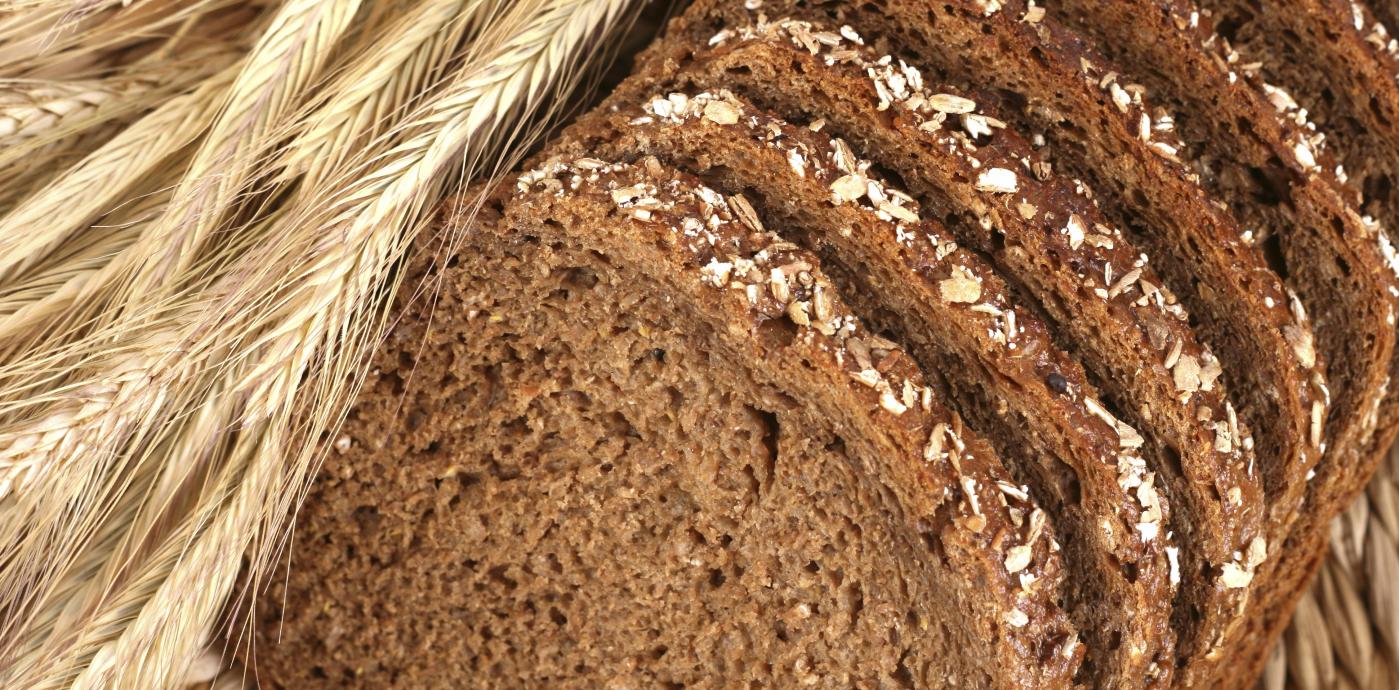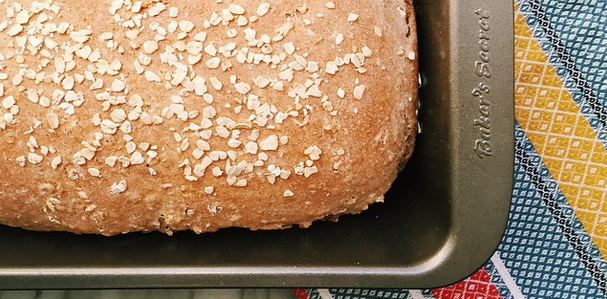This blog was originally published on US News & World Reports Eat + Run blog. See the original post here.
You may have seen recent stories with headlines like White Bread Just as Healthy as Whole Wheat and come away with the feeling that food choices are inconsequential. After all, what can you believe anymore after hearing your whole life that wheat bread is always a better choice than white But in reality, the type of bread you eat (and the type of grains you choose, in general) can help you take great strides on your journey to health.
The most recent flurry of contradictory headlines revolves around one 20-person study, which compared some effects of eating whole-grain sourdough for one week to the effects of eating processed white bread for a week. The authors didn’t and any significant differences after eating white bread versus whole-grain sourdough bread, and concluded that everyone needs their own personalized nutrition recommendations based on their unique gut microbes.
But this conclusion needs to be taken with a grain of salt er, grain of wheat. For one, the researchers didn’t control for the other foods participants were eating. What’s more, they had financial interests: The study was designed and written by paid consultants for DayTwo, a company selling personalized nutrition kits based on consumers gut microbiomes. It should surprise no one that they might design a study and interpret the results in a way that downplays the prevailing assumptions of healthy eating, and emphasizes the importance of personalized nutrition. How else would they be able to incentivize people to buy their $299 (or more) kits
Granted, I too, have an interest in promoting whole grains: I work for Oldways Whole Grains Council, a nonprofit consumer advocacy group dedicated to increasing whole-grain consumption in the name of health. But I’m also a dietitian who believes in this mission because I know that larger, longer, and more responsibly-designed studies have demonstrated the wide-ranging benefits of choosing whole grains over refined grains.
In one study, for example, researchers randomly assigned 81 healthy adults to eat either whole grains or refined grains for six weeks, keeping all other foods and nutrients consistent between the groups. Although both diets were designed to deliver an equal number of calories, those who ate whole grains significantly revved up their metabolisms; over the six-week study, they burned 92 more calories per day than those in the refined grain group without exercising more. The whole grain group also had significantly higher concentrations of good gut microbes, researchers found.
These results are not unique. Scientists in California found that people burned 50 percent more calories digesting a whole-grain sandwich with real cheese compared to a sandwich on white bread with a processed cheese product, even though both sandwiches had the same amount of calories and the same ratio of bread to cheese. Research in Europe has reached similar conclusions. Real, whole foods have real health advantages.
While the ingredients in your bread are important (whole-wheat flour instead of white flour, for instance), the way it’s made can also impact the overall healthfulness of the product. Researchers have found that sourdough bread has a gentler impact on your blood sugar than yeasted bread, makes some minerals and phytochemicals more bioavailable, and makes the grain’s fiber more accessible to your gut microbes. During the sourdough fermentation process, good bacteria are busily breaking down components in the grain, including gluten. This can make sourdough bread much easier for some people to digest, since there’s less work left for their own bodies to do.
Contrary to popular belief, nutrition experts do agree on what types of foods (and breads) are best for health. The perceived contradictions might make for juicy headlines, but in reality, nutrition research is not as muddled as many journalists lead readers to believe. In fact, to address this issue, Oldways gathered leading researchers across a wide spectrum of dietary philosophies (from paleo to vegan, from low fat to Mediterranean, and many more) to and common ground on what constitutes a healthy diet. Not surprisingly, no one was singing the praises of refined grains like white bread.
Kelly Toups, Director of Nutrition







